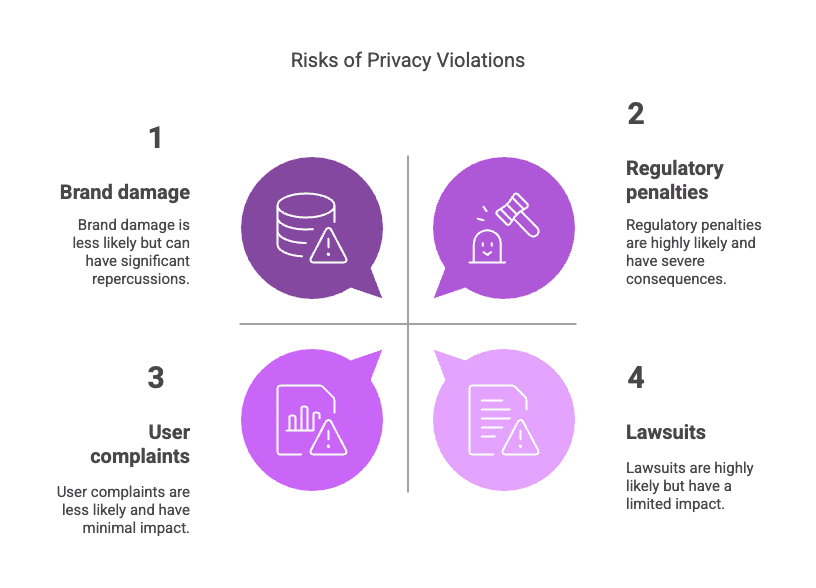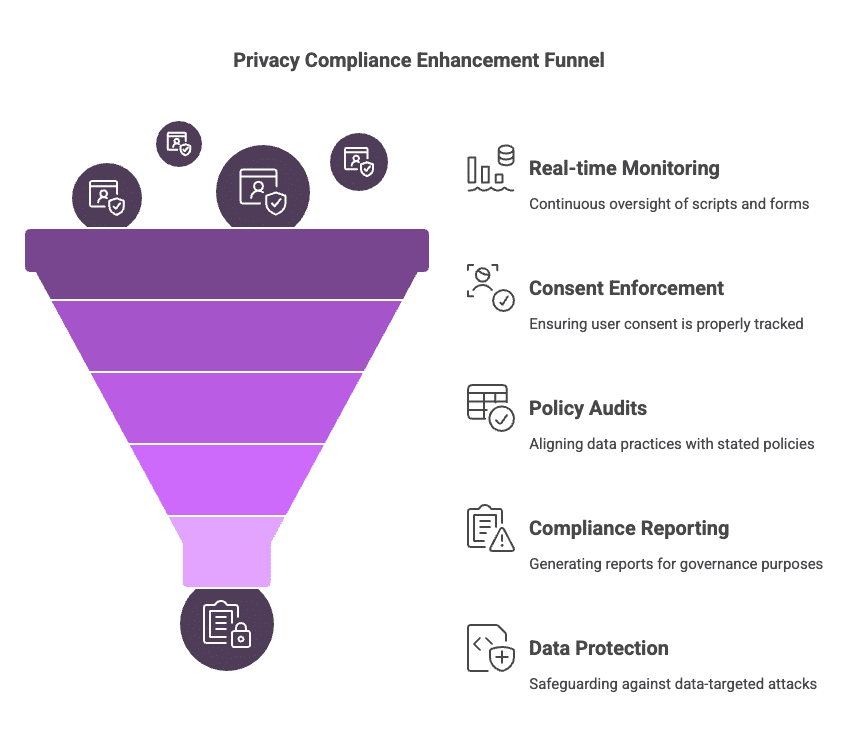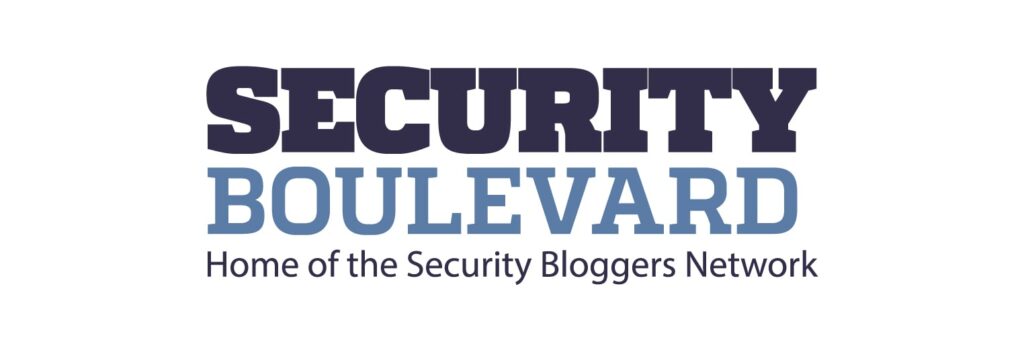Introduction
Websites that handle personal data from Australian residents must comply with the Australian Privacy Principles (APPs) under the Privacy Act 1988. The Office of the Australian Information Commissioner (OAIC) enforces these laws, and non-compliance can result in legal penalties and reputational harm. Many businesses operating in Australia are caught unprepared when it comes to OAIC compliance requirements.
This guide offers actionable steps to help you align your site with APPs and explains how Feroot Security makes ongoing compliance simple and scalable. Whether you’re handling email addresses, IP addresses, or other personal identifiers, proper privacy management solutions are essential for your organization.
What Are the Australian Privacy Principles?
There are 13 principles that govern how personal data is collected, used, disclosed, stored, and deleted. The Australian Information Commission has developed these principles to protect various types of data collected from individuals. Key requirements include transparent privacy practices, informed consent, secure data handling, and a clear process for user data access or corrections.
The Australian Privacy Principles (APPs) apply to most businesses operating in Australia that collect personal information. These principles cover everything from the collection of sensitive information to cross-border disclosures of personal information when data moves outside of Australia to countries like the United States.
Websites must also be prepared for the Notifiable Data Breaches (NDB) scheme, which requires prompt action if personal information is exposed in a way that could cause serious harm. This breach notification system is a critical component of maintaining compliance with Australian privacy law.
Why APP Compliance Matters

APP compliance is not just a legal formality—it builds digital trust and ensures ethical data privacy in Australia. While not as widely known globally as the General Data Protection Regulation (GDPR) or the California Consumer Privacy Act (CCPA), the APPs represent a robust framework for personal data protection in the Australian context.
Websites that violate privacy obligations risk:
- Regulatory penalties from the OAIC as a government agency responsible for privacy law enforcement in Australia
- Lawsuits and user complaints over mishandling personal data
- Brand damage from data breaches involving personal information
Using a solution like Feroot Security helps mitigate these digital privacy risks through automation tools, real-time privacy monitoring, and visibility across your site’s client-side behavior.
How to Make Your Website Compliant
1. Publish a Transparent Privacy Policy Website
Your privacy policy website must be easily accessible and written in clear language. It should describe the types of personal data collected, the purpose of collection, whether data is disclosed to third parties (including those overseas), and how users can access or correct their information.
A comprehensive privacy policy should address the disclosures of personal information to third parties, particularly when it involves cross-border disclosure under APPs requirements. The policy should also clarify how you handle specific categories like email addresses and IP addresses.
Feroot can help ensure your real-time website behavior matches what’s disclosed in your policy through behavioral audits and script tracking as part of a comprehensive website privacy audit.
2. Secure Data Collection and Storage
Collecting personal data on web forms or contact pages introduces risk. Use HTTPS encryption and ensure input fields incorporate secure form data practices to protect against client-side attacks like skimming or script injection.
Secure data collection tools should verify that form submissions are properly protected, especially when collecting sensitive personal information. Client-side security has become increasingly important as attackers target browser-based vulnerabilities.
Feroot provides front-end security tools that continuously monitors scripts in real time and block malicious activity before data ever leaves the user’s browser.
3. Control Consent and Cookie Tracking
Transparency and consent are core to APP 5 and 6. Sites must notify users when collecting personal data and provide them the ability to give or deny consent for cookies and trackers. Implementing a proper consent banner that meets cookie consent Australia requirements is essential.
Consent tracking tools should document user preferences and ensure your site respects those choices. This is particularly important for analytics scripts and marketing trackers that collect user behavior data.
Feroot’s Consent Tracker can automatically block non-essential scripts until a user opts in—ensuring that no tracking begins without proper permission, which helps maintain compliance with both APPs and international standards like GDPR.
4. Manage Third-Party Scripts
Many compliance risks stem from third-party script control challenges. Scripts embedded for marketing, analytics, or performance often introduce unauthorized data flows or cause cross-border data transfers without proper safeguards.
Digital compliance tools should give you visibility into script behavior and data access. Cross-border disclosure APPs requirements are especially strict when personal data leaves Australia, requiring explicit consent or contractual protections.
Feroot’s PageGuard gives you full visibility into every third-party script running on your site. It allows you to approve, block, or isolate scripts based on risk, helping you meet the requirements of APP 8 regarding cross-border disclosure.
5. Enable Access and Correction
Users have the right to access the personal data you store and request corrections. Your website should offer a way to submit such requests and act on them within a reasonable timeframe. This process should accommodate all types of data you collect, from basic personal identifiers to more complex behavioral data.
Feroot assists with mapping data flows, making it easier to locate user-specific data during an access or correction request, which is crucial for meeting these privacy rights obligations.
6. Plan for Data Breaches
The Notifiable Data Breaches (NDB) scheme requires that you assess and report breaches that could result in serious harm. Having a breach notification system and response protocol is essential for compliance with the Office of the Australian Information Commissioner’s expectations.
A proper breach response plan should address:
- Detection capabilities
- Assessment procedures
- Notification processes
- Remediation steps
Feroot’s website risk monitoring capabilities enable real-time alerts and help you build incident response workflows to ensure timely notification to users and the OAIC if needed.
7. Automate Compliance Monitoring
Manual compliance reviews are often incomplete and outdated. Compliance automation through tools like Feroot enables continuous monitoring of your site’s scripts and data behavior to identify changes that could put you at risk. Real-time privacy monitoring is becoming the standard for organizations serious about maintaining compliance.
Feroot’s automation tools generate compliance reports that can serve as documentation in case of regulatory audits or user inquiries from the Australian Information Commission or other privacy regulators.
How Feroot Security Helps

Feroot Security is a privacy management solution that enables websites to comply with regulations like the Australian Privacy Principles. As a comprehensive digital compliance tool, it offers:
- Real-time monitoring of client-side scripts and forms
- Automated consent enforcement through robust consent tracking tools
- Behavior-to-policy audits that ensure your actual data practices match your stated policies
- Privacy compliance reports for documentation and governance
- Protection from Magecart and similar attacks that target personal data collection
Feroot’s approach embodies the privacy by design website principles that regulators increasingly expect. With Feroot, your website can align with APPs by design—not just at launch, but on an ongoing basis through continuous monitoring.
Compliance Beyond Australia: International Considerations
While focusing on Australian Privacy Principles, it’s worth noting that many organizations must also comply with other regulations like the General Data Protection Regulation (GDPR) from the European Union or the California Consumer Privacy Act (CCPA) in the United States.
A robust privacy management solution should address these overlapping requirements holistically. Fortunately, many compliance measures implemented for APPs will help satisfy portions of these other frameworks as well.
Conclusion and Next Steps
Meeting the Australian Privacy Principles isn’t just about avoiding penalties from the Office of the Australian Information Commissioner—it’s about respecting your users and safeguarding trust. A compliant website requires secure data collection, informed consent, proper handling of user rights, and fast response to breaches.
Feroot Security simplifies each of these steps. By leveraging automation tools for compliance processes, detecting threats early through website risk monitoring, and managing risks at the browser level, Feroot helps your business maintain compliance with regulatory expectations.
Request a demo today to see how Feroot can support your APP compliance strategy and help you implement effective personal data protection practices.


